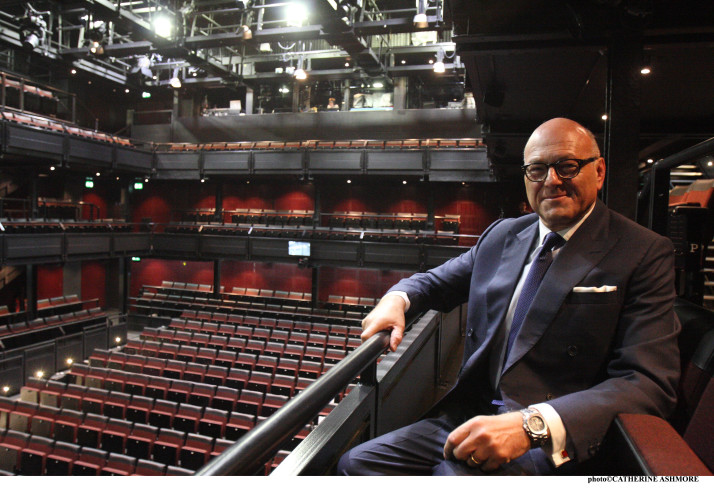The publication of the Culture White Paper provides the opportunity for us to appreciate one of our great strengths as a nation, but also to reflect on how we make it even stronger.

Lloyd Dorfman CBE in the Dorfman Theatre at the National Theatre, 2014
Photo by Catherine Ashmore
I have always been passionate about the arts and culture. Even at school, I much enjoyed drama. In fact, it was around this time, in 1965, that the last White Paper for the arts was published by the responsible Minister Jennie Lee.
More than 50 years on, there are three themes I would highlight arising from this White Paper.
Firstly, increasing the range of people accessing arts and culture should be a priority for the sector. That was at the heart of the sponsorship Travelex started with the National Theatre in 2003. Over the past 13 years, more than 1.5 million cheap tickets have been sold. Over one in four buying these have been first time visitors to the National. I have heard of other theatres and organisations adopting similar schemes and I am proud of that. Indeed, I wasn’t to know it at the time, but this sponsorship was the beginning of a close and long-standing relationship with the National, which culminated in them renaming one of their theatres, the Dorfman, in 2013.
Secondly, I would encourage all cultural organisations to engage more with young people from disadvantaged backgrounds. There is great talent and energy out there in all communities. The Prince’s Trust, which I chair, helps disadvantaged young people get into some form of education, training or employment. We have some wonderful programmes which help youngsters into dance, fashion and music. The proposal in the White Paper for a Cultural Citizens Programme, to give thousands of children from across the country inspiring cultural experiences, is positive and welcome.
Finally, the business community can not only support the sector through philanthropy and sponsorship but also by sharing its expertise. In the current funding environment, cultural organisations need to be smart about finding fresh sources of income, whether public, commercial or philanthropic. They should find ways to make their physical and intellectual assets sweat. Business leaders can and must help arts organisations strengthen their commercial capacity, and the proposed Commercial Academy is a positive step to help fulfil this.
We have wonderful cultural organisations in London and throughout the UK, which are the envy of the world. They are a rich part of our heritage and identity as a nation. They are part of our USP as a country, contributing significantly to the UK’s soft power. They are one of UK plc’s valuable economic assets. The creative industries, from film and music to crafts and publishing, contribute well over £80 billion per year to the UK economy.
If we take the right steps, we can ensure that the cultural sector remains world-leading dynamic, and will only strengthen it by widening access and ensuring that its finances remain in good shape.
Lloyd Dorfman CBE is an entrepreneur and philanthropist. He was on the Board of the National Theatre 2006-15, and is currently a Trustee of the Royal Opera House and of the Royal Academy Trust. He is also Chairman of the Prince’s Trust and Prince’s Trust International.
 Department for Culture, Media and Sport
Department for Culture, Media and Sport